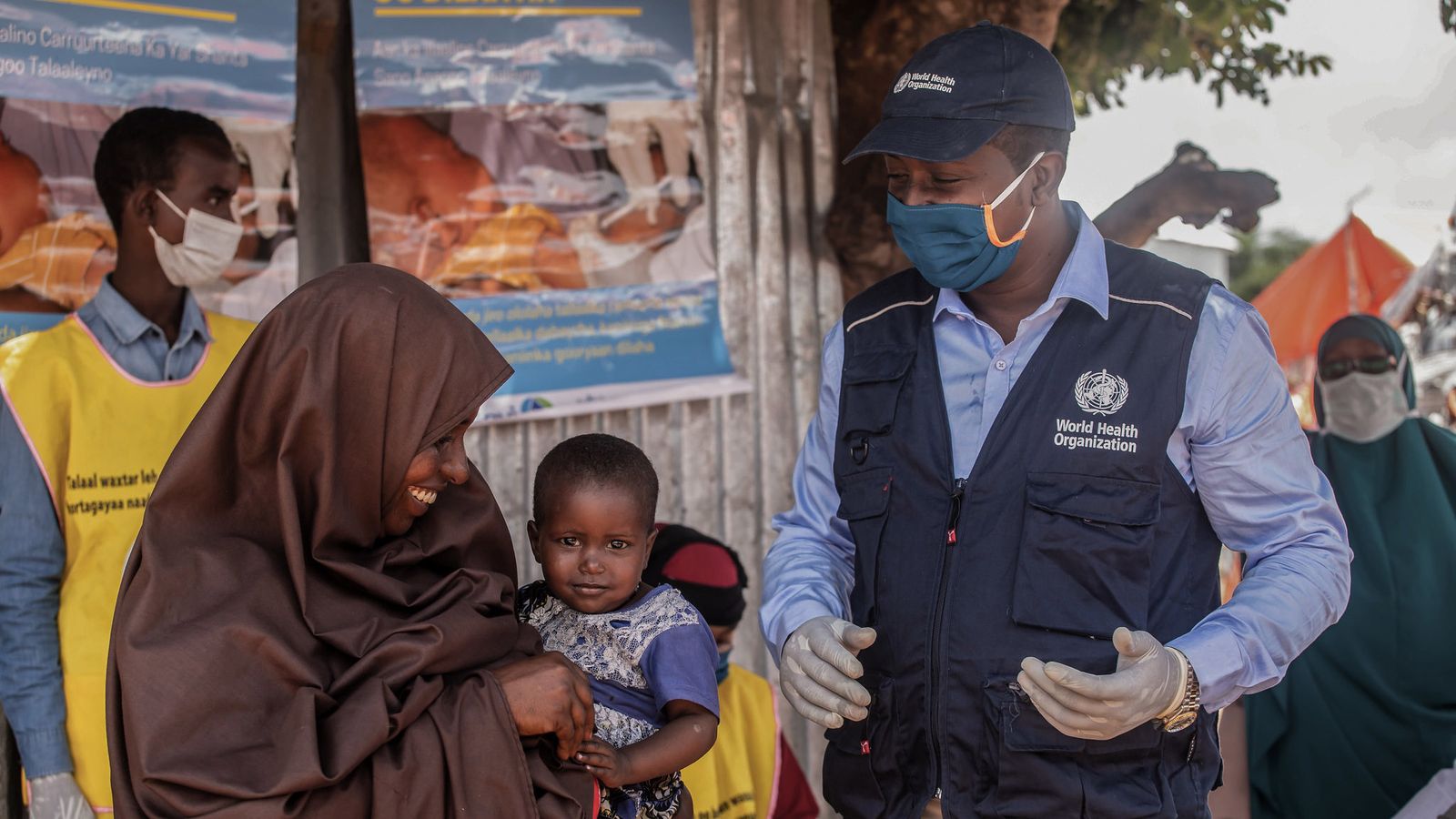From Fields to Walls
Waking up in the morning, one might make a cup of coffee and scroll through their Twitter feed to check the latest buzz. All across CNN, Fox News, the New York Times, and other media outlets there are similar headlines. “Migrants take 2,500 Mile Journey to America,” “US migrant crisis: Trump seeks to curb Central America asylum claims,” and “Desperate Migrants on the Border: ‘I Should Just Swim Across’.” Immigration is a growing issue and has taken over our media in a frenzy throughout this past decade. However, the correlation between the cup of coffee someone can enjoy and the news they may read may be much more parallel than it may seem.
The current immigration issue is multifaceted, but one factor is the role that certain export industries are playing. In many Central American countries like El Salvador, waves of migrants are leaving, escaping, and walking away from their homes because of poverty, violence, and hope of achieving a better life. In 2017, the Department of Homeland Security (DHS) reported that following China, El Salvador had the second-highest amount of asylum seekers in the United States. Taking a closer look at El Salvador and the decline in the coffee industry may be surprisingly relevant in matters addressing issues of immigration in countries such as the United States. Understanding the relationship between these issues can give community members and policymakers better insight on how to address them effectively.
The Caffeinated History of El Salvador
Located next to the Monument of Reconciliation in San Salvador, El Salvador, a large brick wall sketches out El Salvador’s history pictographically. The mural displays scenes of the country’s start from the early Mayans to the modern events following the revolutionary Oscar Romero. The motif of coffee beans is present throughout; the consistent etchings of coffee are meant to symbolize the important role that coffee has played in economic development and modernization of El Salvador.
In the late 1880s, “El Grano de Oro” (the “Grain of Gold” in Spanish) surpassed indigo, a dark blue dye, as the leading export from El Salvador due to its commercial promise. In the 1920s and 30s, these coffee exports alone represented 90 percent of the country’s exports. By the 1970s El Salvador had become the world’s third-largest coffee producer. Fifty percent of the nation’s GDP stemmed from the coffee industry during the 1980s, demonstrating the vital role it played in the economic development and stability of the nation.
The stability and foundation coffee provided for El Salvador was tested in the civil war that began in 1980 and lasted for 12 years. In the end, it resulted in an overwhelming amount of poverty and developmental challenges that still continue today, but the coffee industry miraculously maintained its strength and provided unique opportunities for the wealthy.
What Changed?
As prospects for El Salvador are stabilizing with the new democratic government, the coffee industry faces a new struggle. Noticeably, coffee prices have rapidly declined within the last 20 years. In 2002 USAID stated that within the past 18 months of a report coffee prices declined by 75 percent. This problem has continued as the rich, high end coffee produced in El Salvador no longer matches the demands of the conventional coffee market. Corporations are now seeking coffee of lesser quality from producers in Southeast Asia and other Latin American countries who provided larger quantities and cheaper prices than El Salvador.
The tradition of using old-school harvesting techniques to produce this higher quality coffee has further disadvantaged farmers: over the last several years, coffee farmers have suffered notable crop losses due to disease and climate variation. In 2013, a rare coffee leaf rust affected about half the coffee acreage in El Salvador, Honduras, and Guatemala, resulting in damages amounting to over US$1 billion. The combination of fractured land ownership, poor access to financing, labor migration, limited business understanding, and other social issues have contributed to this coffee crisis.
Under the issue of limited business understanding, many small land-owning farmers in El Salvador have fallen into what Dartmouth professor Richard d’Aveni calls a new form of the commodity trap. With mass globalization and competing industries, producers have to consistently improve quality or other product benefits while decreasing prices to keep up with competitors. This phenomenon also occurs when producers have a lower quality of products and have to keep pace with falling prices. This occurred in El Salvador, where local coffee’s quality remained high but competitors’ prices were cheaper. As a result, Salvadoran farmers lowered prices when selling to foreign buyers, which proved unprofitable and unsustainable.
The plummeting global coffee prices over the past decade have forced more than 80,000 Salvadoran small coffee producers and coffee pickers off the land and into poverty. Many farmers end up with large debts and resort to forfeiting their land to the government in an attempt to pay off their loans. Thousands more have migrated to cities in search of work, taking new roles as street vendors and factory workers in sweatshops.
Salvadorans are attempting to find high ground in these troubling waters; however, with the loss of thousands of seasonal jobs and permanent coffee farms, things have been looking relatively bleak for the future of coffee in El Salvador. The coffee industry once provided direct employment for 155,000 workers; just between 2013 and 2014, according to ABECAFE Union for Mills and Exporters, it took away 140,000 jobs from Salvadorans.
The Quest for a Better Life
With leftover debts, limited economic opportunity, and mouths needing to be fed, thousands of migrants from Central American countries wait anxiously to have their asylum cases filed and some are even risking their lives to cross over the US-Mexican border, seeking a life of new opportunities. With the decline in international commodity prices, products like coffee, bananas, or palm oil, along with increasing environmental issues, migrants from countries like El Salvador face increases in unemployment, food insecurity in poor households, abandonment of farms, and migration out of rural areas.
In countries like El Salvador, as traditionally reliable economic opportunities such as working on coffee plantations are disappearing, the amount of people migrating to cities or even illegally to other countries are is increasing. Thousands more can be seen risking their lives attempting to travel to Mexico and the United States in search of work. Between October 2015 and September 2016, US immigration authorities apprehended 39,884 children and families from El Salvador attempting to cross the border. In the U.S. there are over two million Salvadorans who live and work. This money is then sent over home where an estimate of about over $2 billion per year is used for their families to keep the economy in their home country afloat.
Beyond just the search for employment, the general poverty and violence in communities further stimulate the rising number of people seen at borders. Violence and threats from gangs, like MS-13 and Calle 18, have affected the personal security of citizens in El Salvador. In early 2012, El Salvador had a murder rate as high as 18 deaths per day. In turn, the spikes in gang violence during this time have been increased by the lack of economic opportunity. Out of desperation, individuals, mainly young men ages as young as 7 years old, were joining these gangs because it was seen as the best way to gain power, money, and safety. Recognizing this issue, the government has carried out prominent campaigns against gang violence to reduce the widespread fear that permeates communities. However, for many who live in poor urban areas in cities like San Salvador, the risks remain on their minds daily.
The unfortunate reality is that these issues are not solely limited to El Salvador. Other countries, such as Honduras and Guatemala face similar concerns related to internal migration, emigration, and violence in communities. The decrease in prices and market value of products like coffee and other exports have increased unemployment rates and promoted the appeal of joining dangerous gang communities.
Where is El Salvador Today?
Despite troubling times, the people of El Salvador are optimistic about the future of their country. Innovatively and collaboratively, farmers in El Salvador are now attempting to take new approaches within the coffee market. Smallholder coffee farmers are attempting to reform their approach to the coffee industry by introducing new varieties of coffee that are resilient to diseases and climate extremes, along with implementing new management practices.
Programs like The Resilient Coffee in Central America, supported by USAID and Texas A&M University, are focused in countries like El Salvador, Honduras, and Guatemala to help create a better quality of life, jobs, and income for these farmers. Their program focuses on a five pillared approach: identifying opportunities to create resilient coffee, spreading of management strategies, increase in technological usage for coffee production, diversification of coffee cultivation, and finally, strengthening research and international partnerships with farmers.
The future of El Salvador’s coffee industry rests on fair trade practices or the “specialty coffee” market. According to the World Fair Trade Organization (WFTO), fair trade practices are defined as a “trading partnership, based on dialogue, transparency, and respect, that seeks greater equity in international trade. It contributes to sustainable development by offering better trading conditions to, and securing the rights of, marginalized producers and workers.” Rather than corporations taking advantage of Salvadoran producers, fair trade would support fair pay and reasonable prices to help promote growth in future coffee production and stable living conditions for producers.
With improvements in public policy to support producers in niche markets and reforms in individual business approaches, El Salvador might be able to ride through this wave of economic difficulty. Through this approach, Salvadoran families can create better lives at home, thus reducing the risk of illegal immigration to countries like the United States and beyond.
The rapid increase in headlines on immigration should indicate the significance of neighborly relationships to the international community. El Salvador’s ongoing coffee issue is a warning that the internal issues of one nation can easily impact the greater global community. Similarly, as consumers supporting a global market, individuals can affect foreign policy for the better by being conscious about what they buy and who they buy it from. Next time, taking a sip of morning coffee might become more meaningful.





